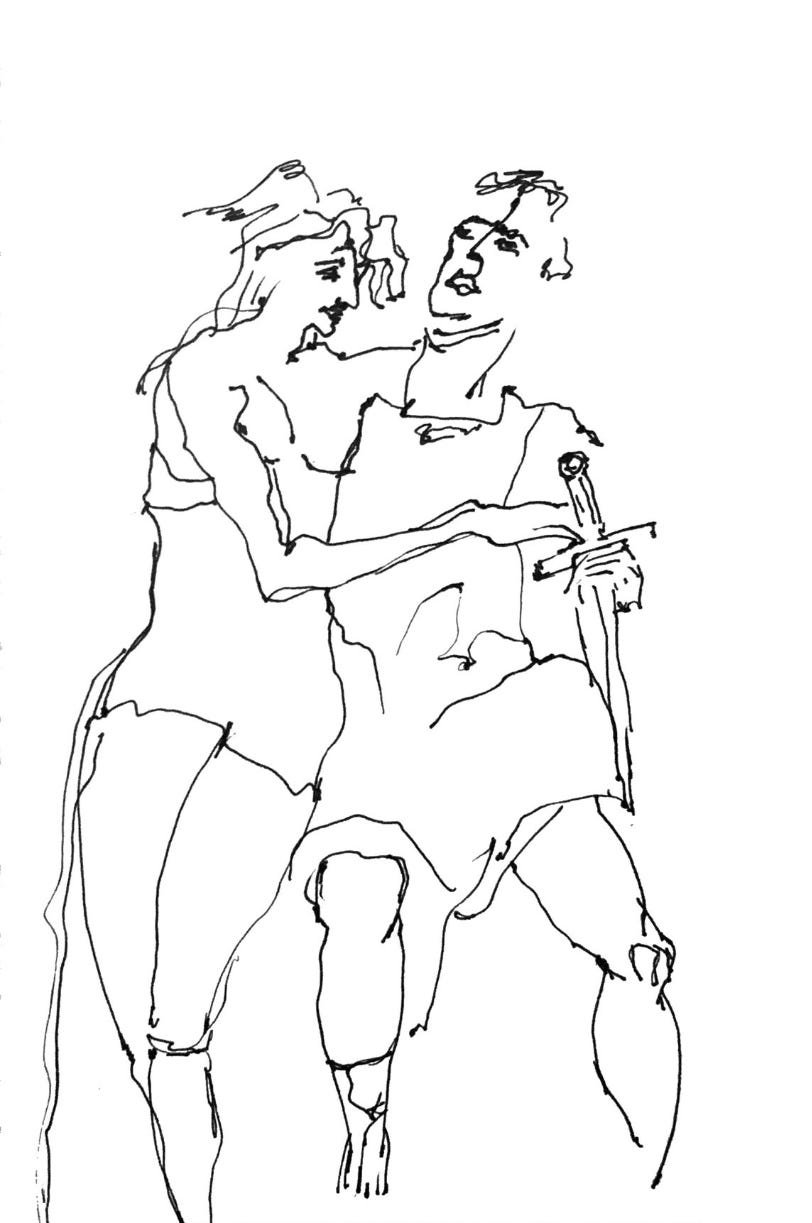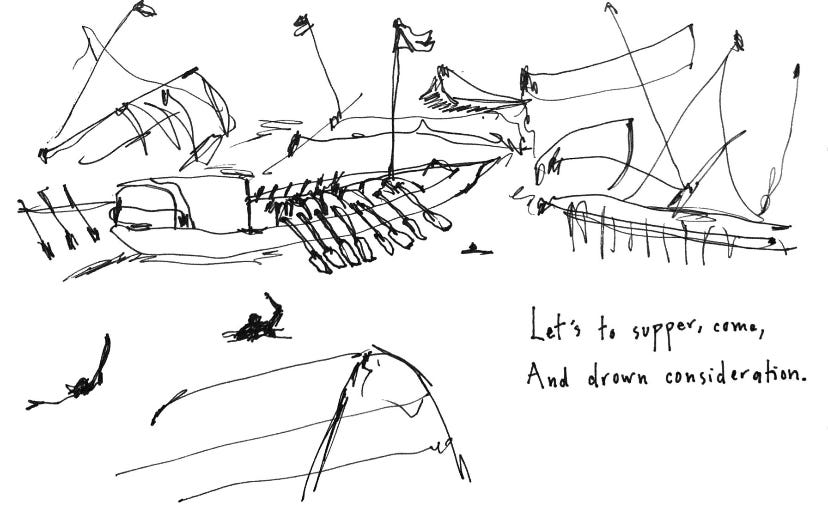I’m going to try to put on Antony and Cleopatra at school. With forty-two scenes, it’s brutally complicated to stage. That’s why people don’t usually do it. And when they do, it’s not very good. I’ve spent the day watching as many productions of it as I could find on the internet. The play’s progression seems incredibly natural on the page; the action carries through cities, across land and sea. But the most faithful stage representations turn out unhappily to be the most plodding.
So I emerge from my Egyptian-Roman researching cocoon both demoralized and heartened, daunted and compelled. How can a bunch of complete amateurs in the middle of nowhere put on this long and difficult play when so many of the great actors have floundered with it? It’s an exciting challenge for the passionate, the immodest dreamers.
Al Pacino set out to reclaim Shakespeare for actors and readers in Looking for Richard. He directed and starred in this 2006 documentary-drama which follows him (as himself) and his closest colleagues in the business as they attempt to stage another one of the longest, most complicated dramas, Richard III. No one’s heard of it, Pacino grants. No one even knows what to associate with it, the way they can match star-crossed lovers with Romeo and Juliet. How do you get people to care? How do you get regular people, not experts and professors, to care?
Like with Richard III, one has to have some sense of the history behind Antony and Cleopatra, the love affair shaped by the uneasy “triple-pillar’d” burgeoning Roman empire. (I have only a dim view of the politics of the era, so I’m looking forward to asking my Latin teacher about it!) In Looking for Richard, Pacino pretty deftly works in the context without patronizing his audience. As I was watching it for the first time this week, I kept wondering: How could I work through Antony and Cleopatra the way he examines Richard III?
Pacino and his film crew encounter a man who lives on the street. They ask him about Shakespeare. Most people they ask give some muddled, uncomfortable reply. But his response, spoken toothlessly but with a gummy precision, contains such flashings-forth of truth you’d think he was being oracularly prompted.
When we speak with no feeling, we get nothing out of our society. We should speak like Shakespeare. We should introduce Shakespeare into the academic [sic]. You know why? Because then the kids would have feeling. We have no feeling. This is why it’s easy for us to get a gun and shoot each other. We don’t feel for each other. But if we were taught to feel we wouldn’t be so violent. He did more than help us. He instructed us . . . If we think words are things and we have no feelings in our words then we say things to each other that don’t mean anything. But if we felt what we said, we’d say less and mean more.
The movie sometimes cuts to professors answering questions about the text in their book-lined offices. They are often very good, very helpful. But this extemporized speech on the sidewalk stays with you much longer.
How do you stage a maritime battle in a lecture room? How do you get over the self-defeating idea that amateurs can’t really put on a play? How do you take back your right to read these perplexing plays from donnish talking heads? These are questions I’m going to work on asking, with the help of Pacino, Shakespeare, and that brilliant guy on the street.
For those with some passion and a little wit and few resources, all the difficulties are opportunities.






